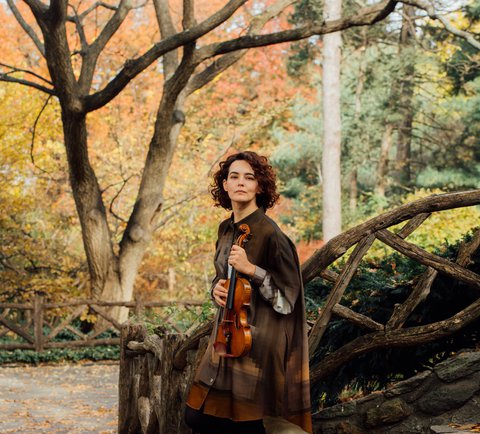Violinist Alena Baeva finds room for improvisation, freedom, and radical ideas about sound in Beethoven’s Violin Concerto. In this interview, our soloist of the Beethovenfest 2025 Opening Concert talks about her refugee experience, her mentor Rostropovich, and her approach to Beethoven.
1. What relationship do you have to Beethoven’s Violin Concerto – can it’s towering legacy intimidate?
This piece has somewhat a superior quality to all other concertos, regardless of whether you play it or listen to it. It is like a majestic mountain: it intimidates from the distance, but the closer you are and the more you listen to it, the more inviting it becomes. Its structure is clear and solid, the melodies are genuinely simple, and, interestingly enough, the violin’s role is mostly improvising around the lines, like a bird’s fly.
In Beethoven’s time, performers hat a huge amount of freedom. Soloists would normally use their fantasy and taste to embellish fermatas, vary the tempi, apply some changes when repeating, etc. In short, make it more personal and improvisatory. Today, quite opposite norms have established themselves: Violinists aspire to a loud, penetrating sound with lots of rich vibrato by default. It is unusual to digress from a stable tempo and from the literal adherence to notation. These standards have been semi-set in stone for a large part of the last century, thanks to the coinciding rise of the recording industry.
However, I want to make use of the amazing opportunity this concerto offers for delivering a truly live and unique performance of with the spirit of urgent discovery. Also, I love to include Beethoven’s own cadenzas for each movement, which he wrote for his own piano arrangement of the concerto. They sound completely modern and crazy! Indeed, who writes a cadenza with timpani and an out-of-the-blue March section in the middle of it? I think this reminds us once again that Beethoven was seeking extremes and did not adhere to strict rules. I can not wait to playing it in Bonn with the brilliant Aurora Orchestra and Nicholas Collon.

